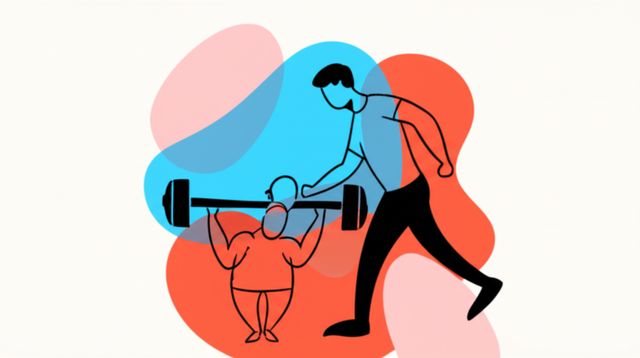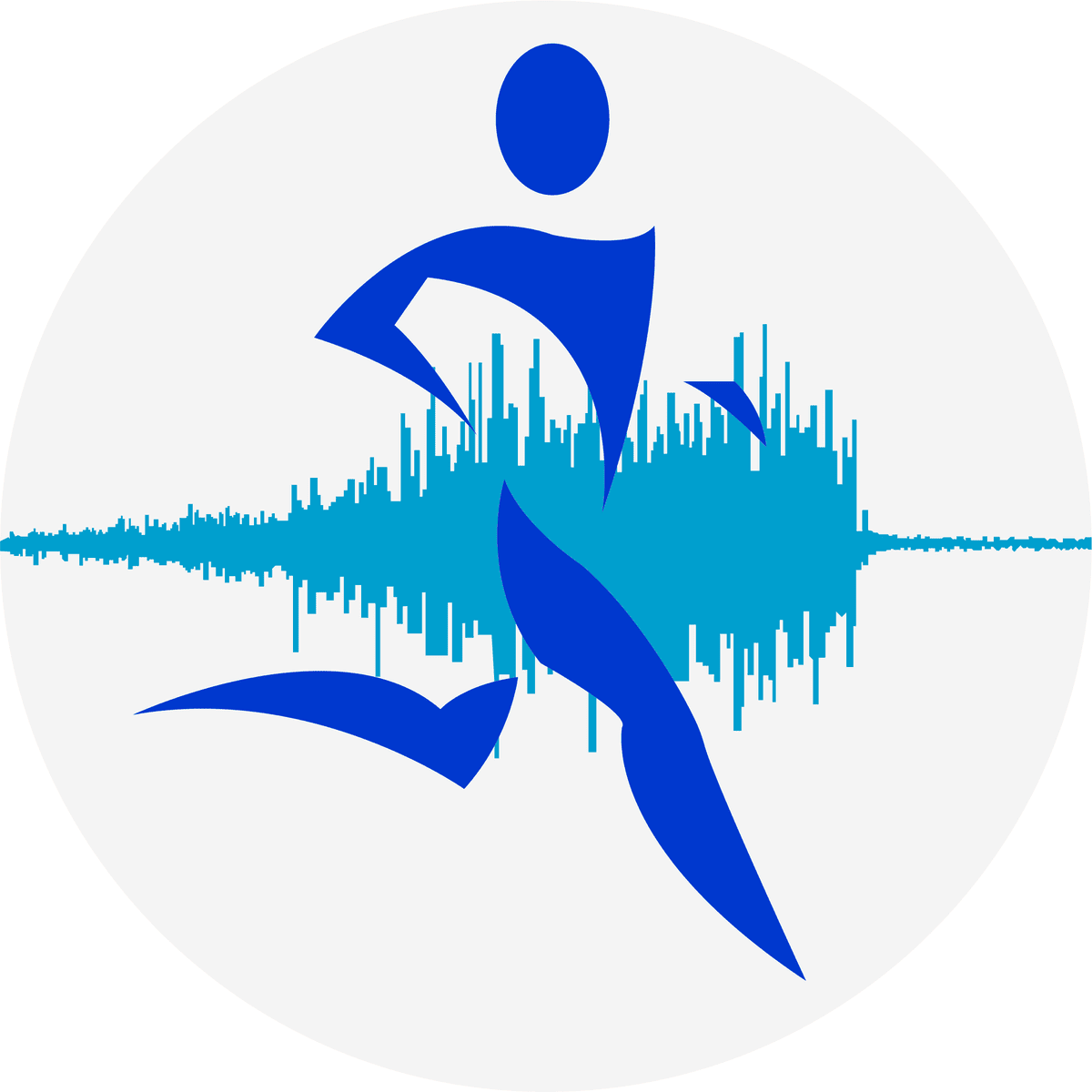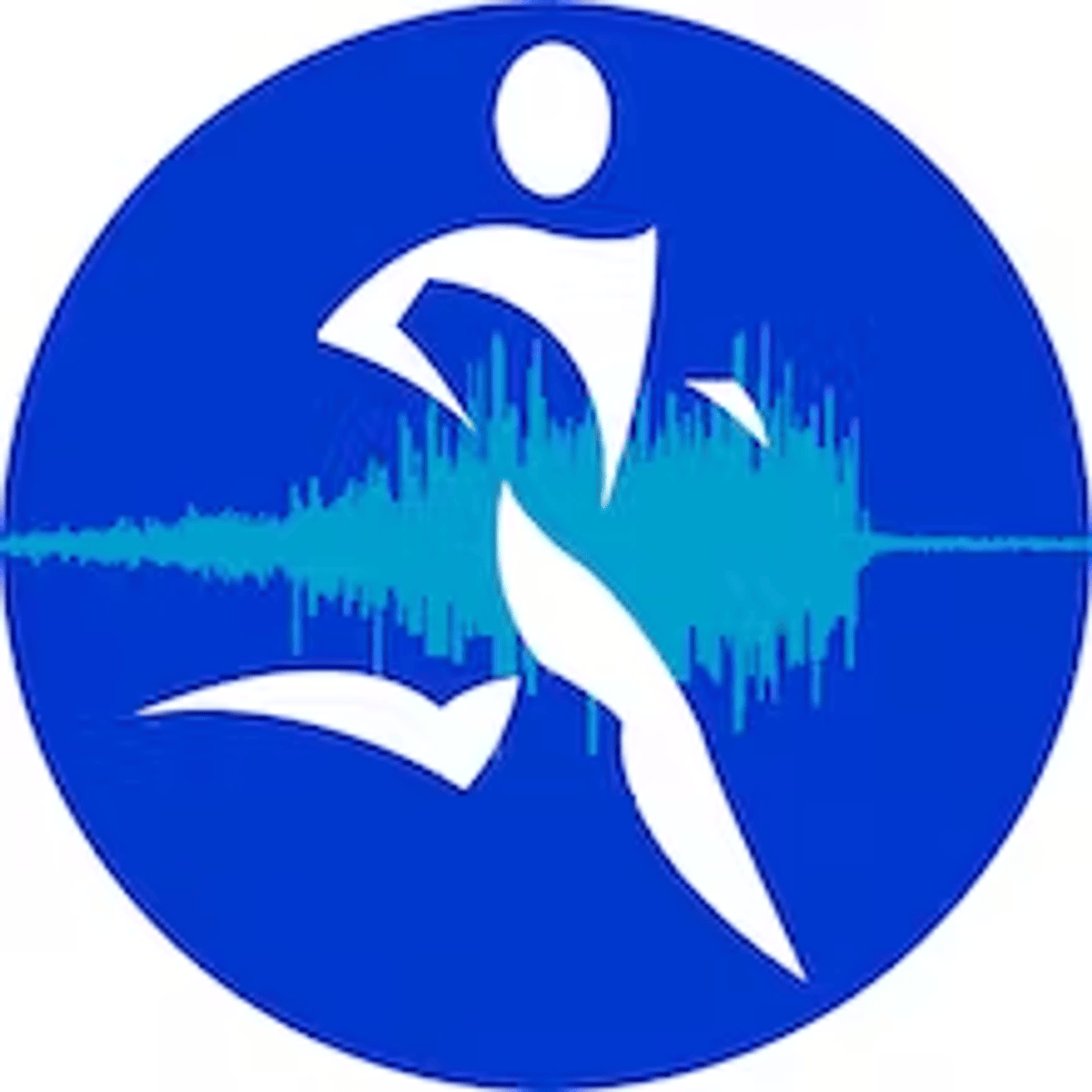Strength and Conditioning Coach
Embarking on a Career as a Strength and Conditioning Coach
A Strength and Conditioning Coach is a fitness professional who employs exercise science to enhance the physical performance of athletes or specific populations. This role involves designing and implementing customized training programs aimed at improving strength, power, speed, endurance, and flexibility, while also focusing on injury prevention. Beyond the physical aspects, these coaches often serve as mentors and motivators, playing a crucial part in an athlete's overall development and success.
Working as a Strength and Conditioning Coach can be incredibly engaging, offering the opportunity to directly impact an individual's athletic capabilities and help them achieve their peak potential. The field is dynamic, requiring a blend of scientific knowledge, practical application, and strong interpersonal skills to effectively guide and inspire athletes. Many find excitement in the challenge of tailoring programs to diverse individuals and sports, continuously adapting to new research and methodologies to stay at the forefront of athletic development.
What Does a Strength and Conditioning Coach Actually Do?
The daily life of a Strength and Conditioning Coach is multifaceted, centering on optimizing athlete performance and well-being. These professionals are responsible for more than just leading workouts; they are integral to an athlete's journey, applying scientific principles to physical training and recovery.
Designing Individualized Training Programs
A primary responsibility is the creation of customized training plans. Coaches assess an athlete's current fitness level, specific sport requirements, and individual goals to develop a targeted program. This involves selecting appropriate exercises, determining intensity and volume, and structuring training cycles to align with competition schedules or personal milestones. These programs are evidence-based and consider factors like injury history and recovery needs to ensure safe and effective progression.
The design process is iterative. Coaches must continuously evaluate the effectiveness of the program and make adjustments based on the athlete's response and evolving needs. This requires a deep understanding of exercise physiology, biomechanics, and the principles of training adaptation.
To gain a foundational understanding of how to structure effective fitness programs, aspiring coaches might find online courses beneficial. These resources can introduce core concepts and methodologies in program design.
Further reading on the science and practice of strength training can provide more in-depth knowledge.
Monitoring Athlete Progress and Adjusting Regimens
Continuous monitoring of an athlete's progress is crucial. This involves tracking performance metrics, observing technique, and gathering feedback from the athlete. Coaches use this data to assess the effectiveness of the training regimen and make necessary modifications. This might include altering exercises, adjusting loads, or changing the focus of training to address weaknesses or plateaus.
This adaptive approach ensures that the training remains challenging yet appropriate, maximizing gains while minimizing the risk of overtraining or injury. Coaches often employ various assessment tools, from simple observation to sophisticated technology, to gain a comprehensive understanding of an athlete's development. Staying informed on how to monitor and adapt programs is vital for success in this field.
Effective progress monitoring is a key skill. Online courses can offer insights into different assessment techniques and how to interpret data for program adjustments.
Collaboration with Medical Staff and Sports Scientists
Strength and Conditioning Coaches often work as part of a multidisciplinary team, collaborating closely with medical staff, such as physical therapists and athletic trainers, as well as sports scientists. This interdisciplinary approach ensures a holistic view of athlete health and performance. Communication with medical staff is vital for managing injuries, designing appropriate rehabilitation programs, and ensuring a safe return to play.
Working with sports scientists can involve analyzing performance data, implementing new research findings, and utilizing advanced technologies to optimize training. This collaborative environment fosters continuous learning and allows coaches to integrate the latest scientific knowledge into their practice. Such teamwork is essential for providing athletes with the comprehensive support they need to succeed.
Understanding injury prevention and the broader aspects of sports medicine is crucial for effective collaboration. Consider exploring resources that cover these areas.
These books offer comprehensive insights into sports medicine and injury management.
Formal Education Pathways
Embarking on a career as a Strength and Conditioning Coach typically involves a structured educational journey, combining academic learning with practical experience. Understanding these pathways is crucial for aspiring coaches aiming to meet industry standards and build a strong foundation for their careers.
Relevant Bachelor’s Degrees
A bachelor's degree in a related field is generally the first academic step and is often a requirement for entry-level positions. Common degree programs include Exercise Science, Kinesiology, Sports Science, or Physical Education. These programs provide essential knowledge in human anatomy, physiology, biomechanics, exercise prescription, and nutrition.
Coursework in these degrees often covers the scientific principles underpinning athletic performance, injury prevention, and training methodologies. This academic grounding is vital for understanding how the body responds to exercise and for designing safe and effective training programs. Some universities may even offer specialized tracks or concentrations in strength and conditioning.
Aspiring coaches can supplement their formal education with online courses that delve into specific areas of exercise physiology and human anatomy to deepen their understanding.
Accredited Certifications
In addition to a bachelor's degree, obtaining a recognized certification is highly recommended and often required by employers. The Certified Strength and Conditioning Specialist (CSCS) certification from the National Strength and Conditioning Association (NSCA) is widely regarded as a gold standard in the field. Other respected certifications include those offered by organizations like the National Academy of Sports Medicine (NASM), such as the Performance Enhancement Specialist (PES).
These certifications demonstrate that a coach possesses the necessary knowledge and skills to design and implement safe and effective strength and conditioning programs. Eligibility for these exams typically requires a bachelor's degree and current CPR/AED certification. Preparing for these certification exams often involves rigorous study of scientific foundations and practical/applied knowledge.
Many individuals use online courses to prepare for certification exams or to gain specialized knowledge recognized by certifying bodies.
For those specifically interested in the CSCS certification, understanding its prerequisites is key.
Internships and Hands-on Training Requirements
Practical, hands-on experience is indispensable for becoming a successful Strength and Conditioning Coach. Internships provide invaluable opportunities to apply theoretical knowledge in real-world settings, working directly with athletes under the supervision of experienced coaches. Many certification bodies and employers require a certain number of supervised coaching hours.
Internships can be found in various settings, including collegiate athletic departments, professional sports teams, private training facilities, and high schools. These experiences allow aspiring coaches to develop their coaching style, learn how to manage groups, adapt to different athlete needs, and build a professional network. Early career roles like graduate assistantships also offer significant learning opportunities.
While direct experience is paramount, some online courses can provide simulated scenarios or case studies that help develop problem-solving skills relevant to hands-on coaching situations.
Online Learning and Self-Paced Education
The landscape of education has evolved, and online learning now offers flexible and accessible pathways for individuals aspiring to become Strength and Conditioning Coaches, as well as for current professionals seeking to enhance their skills. OpenCourser provides a comprehensive platform to explore courses in health and fitness, making it easier to find relevant educational resources.
Benefits of Online Certifications and Courses for Flexibility
Online certifications and courses provide significant flexibility, allowing learners to study at their own pace and on their own schedule. This is particularly beneficial for those balancing work, family, or other commitments. Many reputable organizations now offer components of their certification preparation or continuing education units (CEUs) online, covering topics from basic exercise science to advanced programming techniques.
This accessibility means that individuals in geographically remote areas or those with demanding schedules can still pursue high-quality education in strength and conditioning. Online platforms often feature a variety of learning materials, including video lectures, interactive quizzes, and downloadable resources, catering to different learning styles. The ability to revisit material as needed can also enhance comprehension and retention of complex topics.
Aspiring coaches can find numerous online courses that lay a strong foundation in fitness principles, which is essential before specializing in strength and conditioning.
Books can also supplement online learning by providing in-depth knowledge on various training aspects.
Integrating Online Courses with Hands-on Workshops
While online learning offers convenience and a wealth of theoretical knowledge, strength and conditioning is an applied field that demands practical skills. The most effective approach often involves integrating online coursework with in-person, hands-on workshops or mentorships. Online courses can provide the foundational knowledge in areas like anatomy, physiology, and program design, which can then be applied and refined in a practical setting.
Many certification bodies and educational providers recognize this need and may offer blended learning models, combining online modules with required in-person practical sessions or workshops. This allows learners to develop coaching techniques, learn proper exercise execution, and gain experience in athlete assessment under the guidance of experienced professionals. This combination ensures a well-rounded education that prepares coaches for the realities of the profession.
Consider courses that focus on specific training modalities or populations, which can then be complemented by seeking out workshops specializing in those areas.
Recognized Platforms Offering Specialized Modules
Several recognized platforms and institutions offer specialized online modules and courses relevant to strength and conditioning. When choosing online education, it's crucial to select programs from reputable providers to ensure the quality and relevance of the content. Platforms like Coursera and edX host courses from universities renowned for their sports science programs, covering topics such as sports nutrition, injury prevention, and the science of exercise.
Industry-specific organizations, like the NSCA and NASM, also provide online learning materials, webinars, and courses that can count towards certifications or continuing education. These resources are often tailored to the specific competencies required in the field. OpenCourser can be a valuable tool for discovering and comparing such courses from various providers, helping learners identify programs that align with their career goals and learning preferences. Remember to check the deals page on OpenCourser for potential savings on courses.
Exploring courses on specific aspects like nutrition or speed development can provide specialized knowledge valuable for a Strength and Conditioning Coach.
Books on nutrition and periodization are excellent complements to online modules.
Career Progression for Strength and Conditioning Coaches
The career path for a Strength and Conditioning Coach can be diverse and rewarding, offering opportunities for growth and specialization. Progression often depends on experience, education, certifications, and networking. Understanding the typical trajectory can help aspiring and current coaches plan their long-term career development.
Entry-Level Roles
Most careers in strength and conditioning begin with entry-level positions such as internships or assistant coaching roles. These positions are crucial for gaining practical experience and learning from seasoned professionals. Interns might assist with setting up training sessions, observing coaching techniques, collecting data, and performing administrative tasks. Graduate assistantships at universities are another common entry point, often allowing individuals to pursue a master's degree while coaching.
In these initial roles, the focus is on developing foundational coaching skills, understanding the day-to-day operations of a strength and conditioning program, and building a professional network. While salaries at this stage may be modest, the experience gained is invaluable for future advancement. Some entry-level coaches may also find opportunities in high schools or smaller private training facilities.
Gaining foundational knowledge through introductory courses can be beneficial even before landing an internship.
Mid-Career Opportunities
With a few years of experience (typically 2-5 years) and a proven track record, Strength and Conditioning Coaches can advance to mid-career roles. These might include positions as an assistant strength and conditioning coach at a larger collegiate program or a smaller professional team, or as a head strength and conditioning coach at a high school or smaller college. At this stage, coaches often take on more responsibility for program design, athlete management, and potentially supervising interns or junior staff.
Mid-level salaries tend to be higher, reflecting increased experience and responsibility. Continuous learning, obtaining advanced certifications, and potentially pursuing a master's degree can facilitate this progression. Networking within the industry also remains crucial for identifying and securing these opportunities.
Specialized courses can enhance a coach's skill set, making them more competitive for mid-career roles.
Advanced Roles
Experienced and highly qualified Strength and Conditioning Coaches can progress to advanced roles, such as Head Strength and Conditioning Coach or Director of Sports Performance at major universities or professional sports organizations. These positions involve overseeing all aspects of the strength and conditioning program for multiple teams or an entire athletic department. Responsibilities often include staff management, budget oversight, and strategic planning.
Salaries at this level can be substantial, particularly in high-profile professional sports or NCAA Division I programs. Reaching these roles typically requires extensive experience (often 10+ years), advanced degrees (master's or doctoral), a strong portfolio of success, and a robust professional network. Some coaches may also choose to open their own private training facilities or consulting businesses.
For those aspiring to leadership, understanding advanced training principles and sports science is key.
Essential Skills and Competencies
Success as a Strength and Conditioning Coach hinges on a diverse set of skills and competencies, blending deep scientific knowledge with practical application and strong interpersonal abilities. Mastering these areas is crucial for designing effective programs, motivating athletes, and ensuring their safety and development.
Biomechanics and Exercise Physiology Knowledge
A thorough understanding of biomechanics and exercise physiology forms the scientific backbone of strength and conditioning. Biomechanics involves the study of human movement and the forces acting on the body. This knowledge allows coaches to analyze an athlete's technique, identify inefficiencies, and correct movement patterns to enhance performance and reduce injury risk. [r2bc6d]
Exercise physiology focuses on how the body responds and adapts to physical activity. Understanding energy systems, muscle physiology, cardiovascular responses, and endocrine adaptations is essential for designing training programs that elicit specific physiological changes. [l1vdf7] This knowledge guides decisions on exercise selection, intensity, volume, and rest periods to optimize training outcomes.
Online courses can provide comprehensive introductions or refreshers on these critical scientific disciplines.
These texts offer in-depth explorations of the core sciences relevant to strength and conditioning.
Communication and Motivational Techniques
Effective communication and motivational skills are paramount for a Strength and Conditioning Coach. Coaches must be able to clearly explain complex training concepts, provide constructive feedback, and actively listen to their athletes' concerns. Building rapport and trust is essential for creating a positive training environment where athletes feel supported and understood.
Motivating athletes to consistently push their limits, adhere to demanding training schedules, and overcome setbacks requires a range of techniques. This can involve setting realistic goals, celebrating achievements, providing encouragement during challenging sessions, and fostering a growth mindset. Understanding sports psychology principles can significantly enhance a coach's ability to motivate and mentally prepare athletes for competition. [zp1s6p]
While soft skills are often developed through experience, some courses touch upon the psychological aspects of coaching and athlete interaction.
Data Analysis for Performance Tracking
In today's sports landscape, data plays an increasingly important role in performance optimization. Strength and Conditioning Coaches need to be adept at collecting, analyzing, and interpreting various forms of athlete data. This can range from simple metrics like strength gains and sprint times to more complex data derived from wearable technology, such as heart rate variability, sleep patterns, and workload monitoring.
The ability to analyze this data allows coaches to make informed decisions about program adjustments, identify early signs of overtraining or potential injury, and provide athletes with objective feedback on their progress. Basic statistical understanding and familiarity with data management tools can be highly beneficial. As technology continues to evolve, data literacy will become an even more critical skill for coaches.
Courses that introduce concepts of data in sports can be a good starting point for coaches looking to enhance their analytical skills.
Understanding how to use specific tools for performance tracking can be gained through targeted learning.
Work Environments and Employment Sectors
Strength and Conditioning Coaches find opportunities in a variety of settings, each offering unique experiences, challenges, and rewards. The demand for qualified coaches is present across different levels of sport and fitness, reflecting a growing recognition of the importance of specialized physical preparation.
Professional Sports Teams and Athletic Organizations
Working with professional sports teams (e.g., NFL, NBA, MLB, MLS) or national governing bodies for Olympic sports is often considered a pinnacle in the field. These roles involve training elite athletes, requiring a deep understanding of sport-specific demands and advanced training methodologies. The environment is typically high-pressure and results-oriented, with a strong emphasis on optimizing performance and preventing injuries.
Coaches in this sector often work long hours, including evenings and weekends, and may travel extensively with the team. Compensation can be very high, but these positions are highly competitive, usually requiring advanced degrees, extensive experience, and a proven track record of success. Collaboration with a large interdisciplinary team of medical staff, sport scientists, and sport coaches is common.
Courses focused on elite athlete preparation and sport-specific training can provide relevant knowledge for those aspiring to this sector.
Collegiate and Scholastic Athletics
Colleges and universities employ a significant number of Strength and Conditioning Coaches to work with their diverse athletic programs. Responsibilities range from overseeing the training of multiple teams to specializing with a single high-profile sport like football or basketball. The focus is on long-term athlete development, helping student-athletes improve performance while balancing academic commitments.
High schools are also increasingly recognizing the value of dedicated strength and conditioning programs to enhance performance and reduce injury risk in young athletes. Coaches in scholastic settings play a critical role in teaching foundational movement skills and instilling healthy training habits. Positions in collegiate and scholastic athletics often require a bachelor's or master's degree and relevant certifications like the CSCS.
Understanding the unique needs of young athletes is crucial for coaches in these environments.
record:189unm
Private Training Facilities and Corporate Wellness Programs
Many Strength and Conditioning Coaches work in private training facilities that cater to a range of clients, from aspiring youth athletes and adult fitness enthusiasts to professional athletes seeking specialized training. This setting offers variety in the populations served and the types of training provided. Coaches may offer one-on-one training, small group sessions, or team consultations.
Corporate wellness programs are another emerging area, where coaches design and implement fitness programs to improve the health and productivity of employees. This sector focuses more on general fitness, injury prevention, and promoting healthy lifestyle choices. Entrepreneurial coaches may also establish their own businesses, offering specialized strength and conditioning services.
For those interested in the business side or working with general populations, broader fitness and wellness courses can be beneficial.
Military and Tactical Conditioning Roles
The principles of strength and conditioning are highly applicable to military personnel, firefighters, police officers, and other tactical professionals. These roles demand high levels of physical readiness and resilience. Strength and Conditioning Coaches in this sector design programs to improve job-specific physical capabilities, reduce injury rates, and enhance operational effectiveness. [mjsn5t]
Training often focuses on functional strength, load carriage, endurance, and injury prevention strategies tailored to the unique physical demands and occupational hazards faced by tactical populations. A strong understanding of biomechanics, injury mechanisms, and recovery protocols is essential. Certifications like the NSCA's Tactical Strength and Conditioning Facilitator (TSAC-F) are often preferred or required for these specialized roles.
Specific knowledge of tactical populations' needs is key for success in this sector.
Ethical and Safety Considerations
Operating as a Strength and Conditioning Coach carries significant ethical and safety responsibilities. The well-being of athletes is paramount, and coaches must adhere to professional standards and legal guidelines to ensure a safe and supportive training environment.
Ensuring Athlete Safety and Avoiding Overtraining
A primary ethical duty is to prioritize athlete safety at all times. This involves designing age-appropriate and skill-appropriate training programs, teaching correct exercise techniques, and ensuring proper supervision during training sessions. Coaches must be vigilant in recognizing signs of fatigue, pain, or improper form that could lead to injury.
Avoiding overtraining is a critical aspect of athlete safety. [9prbv6] This requires careful monitoring of training load, recovery, and an athlete's overall stress levels. Coaches must understand the principles of periodization and recovery to prevent burnout, chronic fatigue, and increased susceptibility to illness or injury. Educating athletes about the importance of rest, nutrition, and sleep is also part of this responsibility.
Understanding how to design safe and effective programs is a core competency that can be enhanced through specific courses focusing on injury prevention and appropriate training loads.
Confidentiality in Athlete Health Data
Strength and Conditioning Coaches often have access to sensitive athlete health information, including injury histories, medical conditions, and performance data. Maintaining the confidentiality of this information is a crucial ethical obligation. Coaches must handle such data with discretion and in accordance with relevant privacy laws and institutional policies.
Sharing athlete health information should only occur with appropriate consent or when necessary for the athlete's care, typically within the multidisciplinary team (e.g., medical staff). Establishing clear protocols for data storage, access, and sharing helps protect athlete privacy and maintain trust. This ethical standard is fundamental to the coach-athlete relationship.
While specific courses on data privacy in sports coaching might be niche, general awareness of health information principles is important. Familiarizing oneself with resources from organizations like the U.S. Department of Health & Human Services regarding HIPAA can be insightful, even if direct applicability varies by employment setting.
Navigating Conflicts of Interest in Competitive Settings
Conflicts of interest can arise in competitive settings, and Strength and Conditioning Coaches must navigate these situations ethically. For example, pressure to return an injured athlete to play prematurely for competitive advantage can conflict with the coach's primary responsibility to the athlete's health and safety. Coaches must advocate for the athlete's well-being, even if it means making unpopular decisions.
Transparency and clear communication with athletes, sport coaches, and management are key to managing potential conflicts. Adhering to established professional codes of ethics, such as those provided by the NSCA, can offer guidance in these complex situations. Prioritizing the long-term health and development of the athlete over short-term competitive gains is a hallmark of ethical coaching.
Professional ethics are often covered in comprehensive certification programs. Further exploration of sports ethics can provide a broader understanding.
Industry Trends and Technological Advancements
The field of strength and conditioning is continually evolving, driven by new research, emerging technologies, and a greater understanding of athletic performance. Staying abreast of these trends is crucial for coaches to remain effective and provide the best possible support to their athletes.
Wearable Tech for Real-Time Performance Monitoring
Wearable technology has become increasingly prevalent in sports, providing coaches and athletes with real-time data on a wide array of physiological and biomechanical parameters. Devices such as GPS trackers, heart rate monitors, accelerometers, and sleep trackers offer insights into training load, recovery status, movement efficiency, and fatigue levels.
This data allows coaches to make more informed decisions about training adjustments, identify potential injury risks, and personalize training programs with greater precision. For instance, monitoring an athlete's workload can help prevent overtraining, while analyzing biomechanical data can help refine technique. The challenge for coaches lies in effectively interpreting this vast amount of data and translating it into actionable strategies.
Familiarizing yourself with the types of data these technologies provide can be enhanced through online resources.
AI-Driven Personalized Training Programs
Artificial Intelligence (AI) is beginning to make its mark on strength and conditioning, with the potential to revolutionize how training programs are designed and implemented. AI algorithms can analyze vast datasets—including an athlete's historical performance, biometric data, injury history, and even genetic information—to create highly individualized training plans.
AI can help identify patterns and predict how an athlete might respond to specific training stimuli, allowing for more precise adjustments to optimize performance and minimize injury risk. While AI can assist with data analysis and program suggestions, it is unlikely to replace the human element of coaching, such as empathy, motivation, and the ability to adapt to unforeseen circumstances. Instead, AI is viewed as a powerful tool that can augment a coach's expertise.
Understanding the potential of AI in sports can give coaches a forward-looking perspective.
Growing Emphasis on Mental Health and Recovery
There is a growing recognition within the sports world of the critical importance of mental health and holistic recovery for optimal performance and athlete well-being. Strength and Conditioning Coaches are increasingly expected to be aware of the signs of mental distress and to foster a training environment that supports psychological well-being. This includes understanding the impact of stress, pressure, and injury on an athlete's mental state.
Emphasis is also placed on comprehensive recovery strategies that go beyond physical rest. This includes nutrition, sleep hygiene, stress management techniques, and mental relaxation practices. Coaches play a role in educating athletes about these aspects and integrating them into the overall training plan. Collaboration with sports psychologists and other mental health professionals is also becoming more common.
Courses and literature on sports psychology and athlete well-being can provide valuable insights in this area.
Frequently Asked Questions (FAQ)
Navigating the path to becoming a Strength and Conditioning Coach and understanding the profession can bring up many questions. Here are answers to some common queries that aspiring coaches and those researching the career often have.
What certifications are mandatory for employment?
While "mandatory" can depend on the specific employer and location, the Certified Strength and Conditioning Specialist (CSCS) from the National Strength and Conditioning Association (NSCA) is widely recognized and often a preferred or required credential, especially for roles in collegiate and professional sports. Many employers also look for current CPR/AED certification. Some specialized roles, like those in tactical strength and conditioning, may have specific certification preferences (e.g., TSAC-F). Always check the requirements for the specific jobs you are interested in.
For those seeking information on certification, the OpenCourser Learner's Guide offers articles on how to approach online certifications and integrate them into your career plan.
How does salary vary by experience and sector?
Salary for Strength and Conditioning Coaches varies significantly based on several factors including experience level, education, certifications, geographic location, and the employment sector. Entry-level positions (e.g., interns, graduate assistants) typically offer modest pay, sometimes in the form of stipends. According to a 2022 NSCA salary survey, average salaries range from $60,527-$84,575, with variations across high school, college, professional sports, tactical, and private sectors. Experienced coaches in top collegiate programs or professional sports can earn six-figure salaries, with some earning significantly more. For example, ZipRecruiter notes an average hourly pay of $23.67 as of May 2024, but with a wide range reflecting these variables. Salary.com reported an average annual salary of $67,272 as of May 2025.
Can I transition from personal training to this role?
Yes, it is possible to transition from personal training to a Strength and Conditioning Coach role, and many skills are transferable. Personal trainers often have a good foundation in exercise prescription, client communication, and motivation. However, strength and conditioning typically requires a more specialized focus on athletic performance, injury prevention in competitive contexts, and often involves working with teams rather than just individuals. To make the transition, you will likely need to pursue a relevant bachelor's degree (e.g., exercise science, kinesiology) if you don't already have one, and obtain a recognized strength and conditioning certification like the CSCS. Gaining experience through internships or volunteer work with athletic populations will also be crucial.
Many find online courses helpful in bridging knowledge gaps when transitioning.
What are the biggest challenges in this career?
Being a Strength and Conditioning Coach can be highly rewarding, but it also comes with challenges. Long and irregular hours, including early mornings, evenings, and weekends, are common, especially when working with sports teams. The job can be physically demanding, requiring coaches to be active and demonstrate exercises. Job security can sometimes be tied to the success of the teams or athletes they work with. Burnout is also a concern due to the demanding nature of the role and the emotional investment in athletes' success. Furthermore, staying current with the latest research and technology requires a commitment to continuous learning. Navigating different personalities and maintaining strong communication with athletes, sport coaches, and medical staff also presents ongoing challenges.
How is technology reshaping the field?
Technology is significantly reshaping strength and conditioning. Wearable devices that monitor athletes' physiological responses, workload, and biomechanics are providing coaches with vast amounts of data to personalize training and prevent injuries. Video analysis software helps in dissecting movement patterns for technique correction. Athlete management systems assist in tracking progress, scheduling, and communication. Furthermore, Artificial Intelligence (AI) is emerging as a tool to analyze complex data sets, predict injury risks, and suggest individualized training modifications. While technology offers powerful tools, the coach's ability to interpret data, apply it contextually, and maintain the human element of coaching remains critical.
What global opportunities exist for coaches?
Opportunities for Strength and Conditioning Coaches exist globally, although the prevalence and nature of these roles can vary by country and region. Many countries with developed professional and collegiate sports systems (e.g., in North America, Europe, Australia) have a strong demand for qualified coaches. International sports federations and private training facilities abroad also hire coaches. The specific certification requirements and educational pathways may differ, so research into the standards of the target country is essential. Networking with international organizations and coaches can help uncover these opportunities. English is often a common language in international sports settings, but proficiency in the local language can be a significant asset.
For individuals passionate about sports science, athletic development, and making a tangible impact on performance, a career as a Strength and Conditioning Coach offers a challenging yet deeply fulfilling path. It requires a commitment to lifelong learning, a strong scientific foundation, and excellent interpersonal skills. While the journey may have its rigors, the opportunity to help athletes achieve their potential can be immensely rewarding. If this resonates with you, further exploring educational programs and gaining practical experience are excellent next steps. Remember to utilize resources like OpenCourser to find courses and information to guide your journey. You can also check the Bureau of Labor Statistics for more general information on fitness trainers and instructors, which can provide related context.































